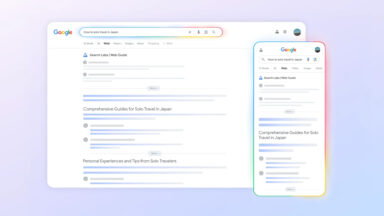
Claude Code revenue jumps 5.5x as Anthropic launches analytics dashboard
Anthropic has unveiled a powerful analytics dashboard for its Claude Code AI programming assistant, a significant move aimed at helping enterprise technology leaders gauge the effectiveness of their AI investments in coding tools. This new feature is designed to provide engineering managers with in-depth metrics on how teams are utilizing Claude Code, including the number of code lines generated by AI, user activity breakdowns, tool acceptance rates, and cost tracking for each developer. As businesses increasingly seek concrete data to validate their AI expenditures, the dashboard represents a crucial step for enterprise clients who want to ensure their AI spending yields tangible returns. "When you’re managing a large engineering team, understanding individual contributions can be a challenge," remarked Adam Wolff, head of Anthropic’s Claude Code team and former head of engineering at Robinhood. "Measuring this effectively is essential, especially as AI tools become standard in software development." The dashboard tackles a pressing issue for tech executives: the lack of visibility into which teams and individuals are benefitting from these premium AI tools. Claude Code's pricing starts at $17 per month for individual developers, with enterprise plans priced considerably higher, reflecting the growing demand for AI accountability among businesses. The new dashboard will track essential activities such as commits and pull requests, providing detailed breakdowns of user activity and associated costs, information that engineering leaders deem vital for optimizing development processes. Wolff noted that different customers have varying objectives, with some eager to invest heavily in AI tools as productivity multipliers, while others prioritize cost management. Featuring role-based access controls, the dashboard allows organizations to manage who can access usage data. Wolff reassured that the system focuses on metadata rather than actual code, alleviating concerns about employee surveillance. "This system does not reveal specific actions taken by individuals; it’s about understanding overall usage patterns and tool effectiveness," he stated. The launch of this dashboard coincides with a remarkable growth phase for Claude Code, which has seen its active user base expand by 300% and revenue grow over 5.5 times since the introduction of Claude 4 models in May. The platform has attracted a host of well-known technology companies, including Figma, Rakuten, and Intercom, with many more enterprise clients using Claude Code under confidentiality agreements. As the market for AI coding assistants heats up, Claude Code aims to distinguish itself by offering robust capabilities beyond mere code completion. It provides what Anthropic describes as "agentic" features, enabling it to understand entire codebases and facilitate coordinated changes across multiple files within existing development workflows. Wolff emphasized that while this is a premium product, the data it provides makes it evident that developers are leveraging these tools to enhance productivity. The company is primarily targeting organizations with dedicated AI enablement teams and substantial development operations. Wolff pointed out that tech-forward companies are leading the charge in adopting Claude Code, especially those with internal teams focused on AI integration. Traditional industries are also showing increased interest, although their adoption timelines tend to be longer due to procurement processes. The analytics dashboard positions Anthropic to compete effectively in the arena of measuring AI tool efficacy, a challenge that many AI coding assistants face. With competitors like GitHub Copilot and newer players like Cursor gaining traction, the landscape is becoming crowded. Amazon has also entered the fray with Kiro, a Claude-powered coding environment, underscoring the heightened competition in AI development tools. Wolff believes that there is ample room in the market for various solutions, noting that many developers utilize multiple AI coding tools for different tasks. Beyond immediate productivity metrics, he views Claude Code as part of a larger trend toward "agentic" software development, where AI systems manage complex, multi-step tasks with minimal human intervention. As organizations continue to demand detailed analytics and ROI for their AI investments, the launch of this dashboard marks a pivotal moment in the evolution of AI coding tools from experimental features to essential components of development infrastructure. For an industry focused on measuring performance metrics, the ability to understand the impact of AI on developer productivity may prove just as crucial as the AI tools themselves.
Sundar Pichai Joins Billionaire Ranks as Alphabet Surpasses $1 Trillion in Value
This week marked a significant achievement for Alphabet Inc., as the company reported a remarkable earnings increase, le...
Mint | Jul 24, 2025, 20:25
Revolutionizing Search: Google Unveils AI-Driven Web Guide for Better Results
The landscape of online search is evolving rapidly, with Google leading the charge by introducing innovative AI features...
Ars Technica | Jul 24, 2025, 19:55
Navigating Travel with AI: Blessing or Burden?
During a recent visit to Taiwan, I sought recommendations from ChatGPT for the best beef noodles nearby, specifying that...
Mint | Jul 24, 2025, 21:05
X Innovates with Community Notes to Spotlight Popular Posts Across Diverse Views
Elon Musk’s platform, X, is set to trial an innovative approach using Community Notes, its crowdsourced fact-checking to...
TechCrunch | Jul 24, 2025, 20:50
Unlocking Efficiency: Why Companies Must Revamp Documentation for AI Readability
In a recent discussion, Laura Tacho, the CTO of developer productivity platform DX, highlighted a pressing issue that ma...
Business Insider | Jul 24, 2025, 20:25